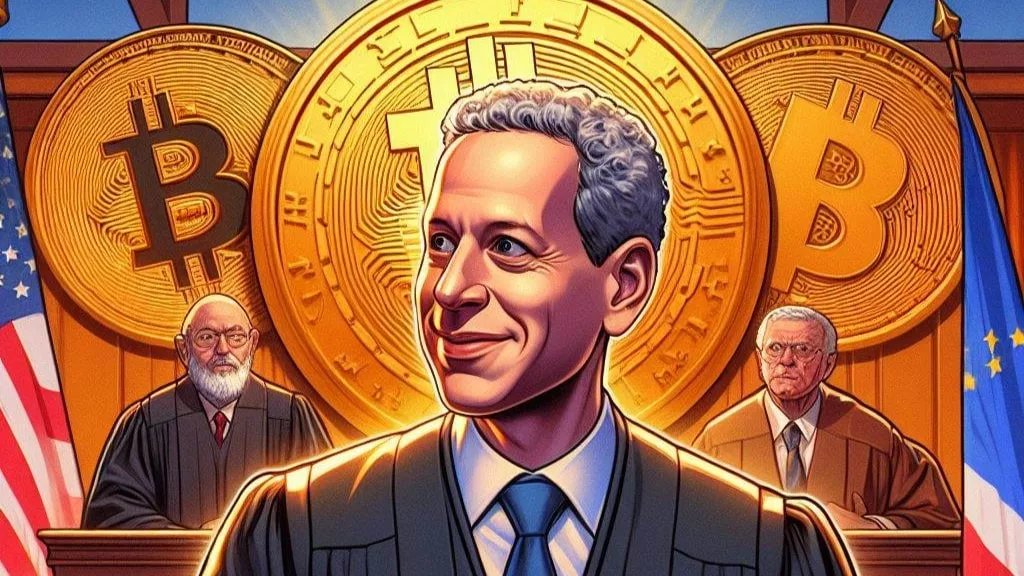
In a courtroom drama that could redefine the legal landscape of decentralized finance (DeFi), crypto trader Avi Eisenberg’s trial is set to commence amidst intense scrutiny and legal debate. Accused of orchestrating a sophisticated scheme that exploited vulnerabilities in the Mango Markets platform, Eisenberg’s case promises to unravel complexities inherent in the rapidly evolving world of digital assets.
As the trial unfolds, the central question revolves around whether Eisenberg’s actions constitute fraudulent manipulation or savvy trading within the parameters of decentralized systems. With the government seeking to portray his maneuvers as a clear-cut case of fraud, Eisenberg’s defense team is poised to challenge this narrative, highlighting the nuances of DeFi protocols and the absence of centralized oversight.
At the heart of the matter lies the concept of “code is law,” a fundamental tenet of DeFi that asserts the primacy of smart contracts in governing financial transactions. Unlike traditional financial institutions, platforms like Mango Markets operate autonomously, executing trades and facilitating loans based on pre-programmed algorithms rather than human intervention.
Eisenberg’s alleged exploitation of Mango Markets’ futures contracts, resulting in significant financial gains at the expense of other users, raises pertinent questions about the legal boundaries of DeFi. Prosecutors contend that his actions amounted to manipulation and fraud, leveraging market dynamics to his advantage while disregarding the principles of fair play and transparency.
However, Eisenberg’s defense team contends that his trading strategy, though aggressive, was not inherently unlawful within the context of decentralized systems. They argue that the absence of regulatory oversight and the nascent nature of DeFi make it imperative to adopt a nuanced understanding of financial transactions in the digital realm.
As the trial progresses, both sides are expected to present compelling arguments supported by expert testimony and legal precedent. The outcome of this landmark case could have far-reaching implications for the burgeoning DeFi industry, influencing future regulatory frameworks and investor confidence in decentralized platforms.
Central to the case is the concept of DeFi, which operates under the premise that “code is law.” Unlike traditional financial systems governed by centralized authorities, DeFi platforms like Mango Markets execute transactions autonomously through smart contracts, opening up new avenues for trading but also presenting unique challenges for regulation and enforcement.
Prosecutors contend that Eisenberg exploited vulnerabilities in Mango Markets’ futures contracts, manipulating the price of the MNGO token to amass substantial profits while jeopardizing the platform’s stability. Eisenberg allegedly leveraged borrowed funds against his position, effectively draining Mango Markets of its deposits before absconding with millions in ill-gotten gains.
The trial’s proceedings promise to be a legal battleground, with both prosecution and defense preparing to dissect complex crypto jargon and intricacies. Arguments over the definition of “manipulation” and the obligations of traders operating on DeFi platforms foreshadow the nuanced debates that lie ahead.
One pivotal aspect of the trial revolves around negotiations between Eisenberg and Mango Markets’ founder, Dafydd Durairaj, following the alleged fraud. Prosecutors hint at Durairaj’s consultation with a ransomware negotiator, suggesting that the aftermath of Eisenberg’s actions resembled a hostage situation rather than a conventional financial transaction.
Beyond the legal intricacies, Eisenberg’s trial underscores broader concerns surrounding the regulation of digital assets and the evolving nature of financial crime in the digital age. With the proliferation of cryptocurrencies and decentralized platforms, regulators face an uphill battle in maintaining market integrity and safeguarding investor interests.
In the midst of this legal showdown, stakeholders across the crypto ecosystem are closely watching, mindful of the potential ramifications for their respective projects and investments. While some advocate for stricter regulations to prevent abuse and market manipulation, others champion the principles of decentralization and self-governance, wary of excessive government intervention.
As the trial unfolds, it serves as a stark reminder of the challenges and opportunities inherent in the ever-expanding world of decentralized finance. Whether Eisenberg is ultimately found guilty or acquitted, the proceedings are poised to leave a lasting impact on the legal and regulatory landscape of the digital asset market.




Get the latest Crypto & Blockchain News in your inbox.